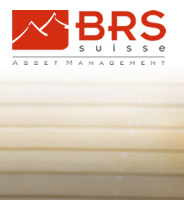Security, Trajectory, Banking Secret and Yield
-
Increase your capital, combining intelligence and experience.
In principle, any adult can open a bank account in Switzerland. Nevertheless, banks reserve their right to reject clients. For example, banks may refuse to provide banking services to “politically exposed” individuals who could imply a high degree of risk to the entity’s reputation should they become clients. Banks are also entitled to refuse establishing a banking relationship in cases where doubts exist regarding the origin of funds, since Swiss banks are banned, by Law, to accept monies generated though illegal means.
-
Are companies entitled to be account holders?
Companies are entitled to open bank accounts in Switzerland, regardless of their main office being located in Switzerland or abroad. Companies that have a legal domicile in Switzerland are identified through the Swiss Commercial Registry statement that banks may download from a web page. The identity of legal persons not included in the Swiss Commercial Registry is verified by equivalent documents. Companies whose main offices are located abroad are treated basically in the same way. However, in cases where the legal domicile is in a country with no official registration, the company must prove its existence by submitting equivalent credentials. Equivalent documents may not have an issue date of over 12 months in advance. A document issued over 12 months before may be used if accompanied by an audit report or a “good standing certificate” whose date of issue is within the previous 12-month period.
-
What documents are included in Swiss banks’ requirements?
The procedure for opening “numbered” accounts is exactly the same as for opening any other type of account. The bank must verify your identity and determine the identity of the final beneficiary. “Numbered” accounts are not anonymous. Within the Swiss bank, these accounts are managed by using a code. This is simply an internal security measure to restrict knowledge of the client’s identity and the client’s transactions to a limited number of the bank’s employees. These accounts do not benefit from additional privileges in what regards confidentiality. “Numbered” accounts may not be used for international money transfers. According to international regulations, the client’s name, address, and account number are to be provided upon requesting international money transfers.
-
Can I open an “anonymous” account ?
No, you cannot. There is no such thing in Switzerland as “anonymous” accounts. They only exist in people’s imagination. Based on Swiss Law, banks must know who you are.
-
What are “numbered” bank accounts ?
The procedure for opening “numbered” accounts is exactly the same as for opening any other type of account. The bank must verify your identity and determine the identity of the final beneficiary. “Numbered” accounts are not anonymous. Within the Swiss bank, these accounts are managed by using a code. This is simply an internal security measure to restrict knowledge of the client’s identity and the client’s transactions to a limited number of the bank’s employees. These accounts do not benefit from additional privileges in what regards confidentiality. “Numbered” accounts may not be used for international money transfers. According to international regulations, the client’s name, address, and account number are to be provided upon requesting international money transfers.
-
How secure are Swiss banks?
All banks operating in Switzerland must have the corresponding authorization from the SFBC (Swiss Federal Banking Commission). The SFBC, a member of the Basel Committee on Banking Supervision, regulates and supervises all banks in Switzerland, in accordance with the regulations set forth by the Basel Committee. Such regulations cover not only equity and capital adequacy, but also the whole scope of application of precautionary measures and behavioral standards. As an additional security measure, Swiss Law calls for standards on capital adequacy that are sometimes more demanding than those applied by the Basel Convention. Therefore, Swiss banks may be considered among the most secure in the world.
-
What is the Swiss Bank Secrecy?
It has always been a Swiss tradition to attach importance to the protection of every individual’s privacy, including the financial aspect. Opinion polls have shown that the majority of Swiss citizens are willing to maintain such protection. However, the high degree of confidentiality that Swiss banks offer their clients, both local and foreign, does not necessarily imply absolute secrecy, and of course, is not intended to protect criminals. As a matter of principles, the right to privacy of clients may be suspended in cases of criminal investigations. The objective is to protect the privacy of the honest clients of Swiss banks and to subdue criminals to the full severity of laws applicable.
